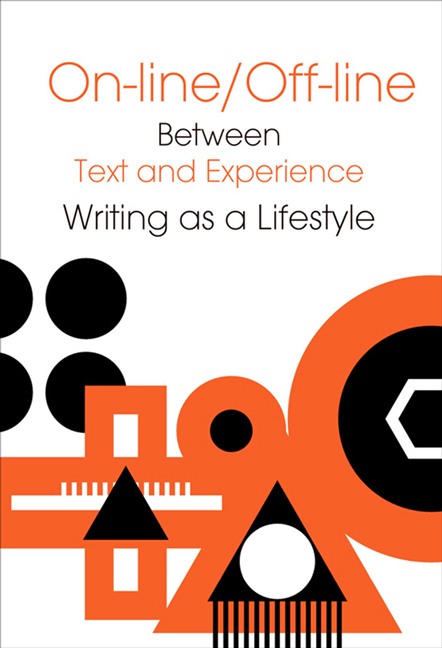Editors’ Introduction
Published online by Cambridge University Press: 12 January 2018
Summary
The articles presented in On-line/Off-line – Between Text and Experience con-cern the status of words and literature in contemporary culture. Opinions about ‘the death of words’, words displaced by pictures, are no longer formulated with equal firmness as in the past. Word and image do not compete, they rather act as equally important ‘ingredients’ of today's cul-ture.To revise popular judgments which reduce the meaning of the Word there is no need for detailed analysis, just observation of daily practices. The vast number of text messages, e-mails, tweets, comments, blogs’ or social networking's posts written day by day confirms the strong position of words (language) in the new media and the “new new media” (as spec-ified by Paul Levinson).
However, just as with the introduction of earlier media in the 19th and 20th centuries, a new medium influences the structure and use of the old media. For example, when movies were introduced, they were initially just filmed theatre performances. It took some time before the techniques of cutting and scene changes were developed. However, once the tech-niques were established they had strong repercussions on the earlier me-dium of writing. Many authors, for example William Burroghs, started working with cut-up-techniques in their texts. This is a clear example of how the narrative forms of a new medium influences the narratives of an earlier medium. The use of e-mail and social media has already influ-enced the style of writing, making it more conversational. Similarly, the ever-presence of a camera in your smart-phone has radically changed the use of visual media. An important task of literary scholars is to follow and document the cross-fertilizations between different media, their influenc-es on narrative structures and their roles in democratic processes.
The articles perfectly fit into the worldwide ongoing debate in hu-manities on the latest developments of cultural practice changing un-der the impact of new technologies – the way of experiencing the text, the various manifestations of “culture of participation”, website genres (among which blogs and microblogs have an important place).Despite the popularity of research on digital dimensions of human existence, the presence of the word (for example in oral culture) is a subject of unabat-ed discussion in other reaserch contexts. Thus, the object of reflection in this volume is not narrowed just to selected “on-line” phenomena, but issues from the “off-line” cultural activites.
Information
- Type
- Chapter
- Information
- On-line/Off-lineBetween Text and Experience: Writing as a Lifestyle, pp. 7 - 16Publisher: Jagiellonian University PressPrint publication year: 2016
